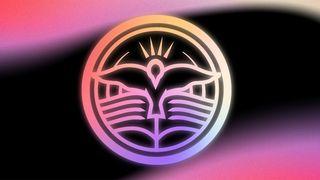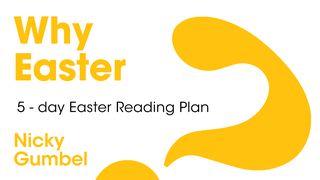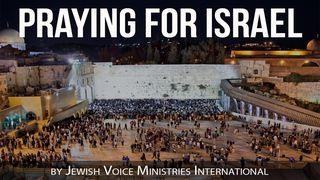Feast of the Cross in the Ancient FaithSýnishorn

Day 5: The Victory of the Cross
Today, we contemplate the Cross as the ultimate sign of victory. Though appearing as defeat to the world, the Cross represents Christ's triumph over sin, death, and Satan. As we read in Colossians 2:14-15, Christ "wiped out the handwriting of requirements that was against us... having nailed it to the cross. Having disarmed principalities and powers, He made a public spectacle of them, triumphing over them in it."
The paradox of the Cross lies in its transformation from an instrument of shame and torture into the most glorious symbol of victory the world has ever known. What seemed to be the defeat of God incarnate became the very means by which He conquered death and freed humanity from bondage. The Orthodox understanding of this victory is radically different from worldly conceptions of triumph; it is a victory achieved not through domination but through self-sacrificial love.
The Cross and Resurrection are inseparable, and we cannot hold either monumental event in higher esteem more than the other - the apparent defeat of death at Golgotha leads to the glory of the empty tomb, for death could not hold the Author of Life. In the hymn chanted on the Feast of the Cross we boldly proclaim, "Through His cross and His holy resurrection, He restored man once again to Paradise." This liturgical acclamation is beautifully captured in the inseparability of the Cross and Resurrection in Orthodox Christian theology.
St. Athanasius of Alexandria, the great Coptic defender of Orthodoxy, eloquently describes this victory in “On the Incarnation”: "The Lord did not come to make a display. He came to heal and to teach suffering men. For one who wanted to make a display the thing would have been just to appear and dazzle the beholders. But for Him Who came to heal and to teach the way was not merely to dwell here, but to put Himself at the disposal of those who needed Him." Through the humility of the Cross, Christ achieved what could not be accomplished through raw displays of power.
This victory extends beyond history into eschatology. The Sign of the Cross will appear in heaven at the Second Coming: "Then the sign of the Son of Man will appear in heaven, and then all the tribes of the earth will mourn, and they will see the Son of Man coming on the clouds of heaven with power and great glory" (Matthew 24:30). What was once a symbol of shame has become the emblem of divine glory, around which the faithful will gather at the end of time.
In his writings, Against Marcionists and Manichæans, St. John Chrysostom proclaims, “The cross destroyed the enmity of God towards man, brought about the reconciliation, made the earth Heaven, associated men with angels, pulled down the citadel of death, unstrung the force of the devil, extinguished the power of sin, delivered the world from error, brought back the truth, expelled the Demons, destroyed temples, overturned altars, suppressed the sacrificial offering, implanted virtue, founded the Churches. The cross is the will of the Father, the glory of the Son, the rejoicing of the Spirit” Truly the Cross destroyed the middle wall between humanity and the Father and the Cross became the reconciliation of two peoples in one body for God; the Cross guided us into the kingdom of heaven and the Cross joined us to the friendship of God. Finally, the Cross removed us far from alienation and brought us near to Him who, through it, reconciled those in heaven and those on earth.
For us as faithful, the victory of the Cross is not merely a historical event to commemorate but a living reality to participate in. Each time we face suffering with faith, each time we choose love over hatred, forgiveness over vengeance, and self-sacrifice over self-preservation, we share in the triumph of the Cross. Our own crosses, when embraced in union with Christ's Cross, become not merely burdens to bear but pathways to glory.
In his letter to the Romans chapter 8 and in verse 37, St. Paul writes that "in all these things we are more than conquerors through Him who loved us." This conquering love, manifested supremely on the Cross, assures us that nothing "shall be able to separate us from the love of God which is in Christ Jesus our Lord" (Romans 8:39). The victory of the Cross is thus the victory of love over all that would separate us from God.
As we conclude our reflection on the victory of the Cross, let us embrace this triumphant sign in every aspect of our lives, knowing that through the Cross, joy has come to the whole world. Let us face our trials with the confidence that comes from belonging to the victorious Christ and let us proclaim His triumph through lives of faith, hope, and love. Let us embrace this victorious sign in every aspect of our lives, knowing that through the Cross, joy has come to the whole world.
Prayer: O Lord, who through Your precious Cross has granted victory to Your faithful, make us worthy to share in Your triumph. May we bear the sign of Your Cross not only on our foreheads but in our hearts and actions. Through the power of Your victorious Cross, strengthen us against all adversities and lead us to the glory of Your Kingdom, where You live and reign with the Father and the Holy Spirit, one God, forever and ever. Amen.
About this Plan

This seven day reflection on the significance of the Holy Cross in the Ancient Faith explores themes such as: the discovery of the Cross, its symbolism as the Tree of Life, its power in daily life, its role in liturgy and prayer, its victory over evil, its protective and healing properties, and its importance in spiritual warfare. The devotional combines biblical references, patristic writings, and Orthodox traditions to deepen our understanding and reverence for the Cross as taught in the Ancient Faith.
More








